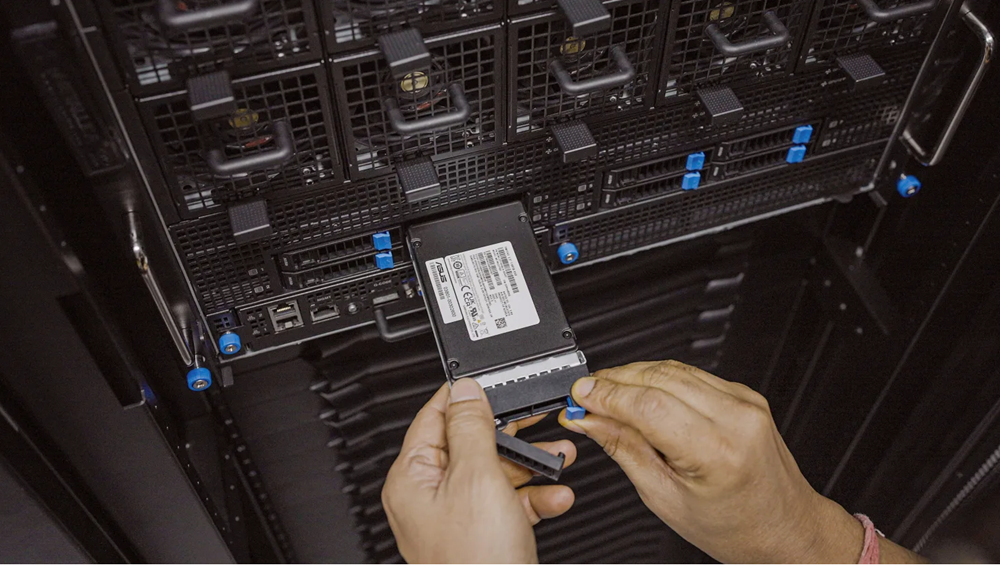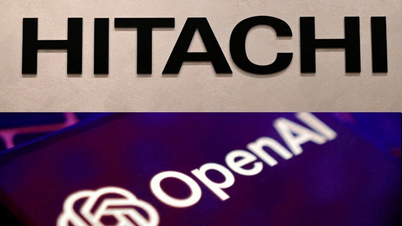
India's current data center capacity is around 1.2 gigawatts - just a fraction of the global capacity - but the potential market is expected to more than double to over 3 gigawatts in the next five years, according to a report in May this year by investment management and real estate services firm Collier.
That growth is attracting global data center companies, Indian billionaires and even luxury real estate developers, all betting on the sector, seen as the backbone of the country’s digital future.
In July, Google began talks with the Andhra Pradesh state government to set up a 1-gigawatt facility. A month later, OpenAI announced it was exploring plans to build a 1-gigawatt data center in India.
These moves show the scale of ambition: databases once measured in tens of megawatts are now being planned in gigawatts, often by “hyperscalers,” or companies that consume enormous amounts of computing power.
Unsurprisingly, competition is getting fiercer. More than 15 companies are chasing market share—from global giants like Japan's NTT, Singapore's Temasek-controlled STT GDC and US operator Equinix, to Indian conglomerates including Adani Group and Reliance Industries.
Real estate developers are also shifting gears. Hiranandani Group’s Yotta Infrastructure, a luxury real estate developer; Delhi-based Anant Raj Developers; and Pune-based Panchshil Realty are also shifting from residential to hyperscale, betting billions of dollars on strategic repositioning.
The AI Explosion
At the heart of this growth is a shift in demand structure. About 60% of data center customers are enterprises, 30% are hyperscalers, and about 10% are AI users, according to data from real estate consultancy Anarock Capital.
“As AI workloads increase, we expect enterprise usage to remain stable, but hyperscaler usage could increase to around 35%. Specific AI user demand is likely to increase by 20% to 25%,” said Shobhit Agarwal, CEO of Anarock Capital.
Hyperscale companies include large-scale data center operators such as Microsoft, Amazon Web Services, and Google.
“The digitization of banking in India and data localization regulations, which require Indian financial data to be stored domestically, have driven the demand for enterprise data,” Alok Bajpai, managing director of NTT Data Systems in India, told CNBC.
The rise of e-commerce services, followed by cloud infrastructure companies, brought the second wave of data center demand. Now, the third wave is expected to come from AI workloads, added Mr. Alok Bajpai .
Last week, Equinix expanded to its second state in India, with its first AI database in Chennai.
Equinix generates 60% of its revenue from customers across three regions: Americas, Europe, Asia, and “they are very keen to expand into India,” Manoj Paul, country managing director of Equinix, said on CNBC’s “Inside India.”
Enterprise customers currently have demand for Indian data centers, but their needs are relatively modest. As customer needs change, infrastructures will be designed to handle much larger workloads.
“In the past, enterprise capacity requirements rarely exceeded 10 megawatts. With hyperscale service providers, the requirement was up to 25 megawatts, even 50 megawatts. With AI workloads, that number can increase to 75–100 megawatts,” said NTT Data Systems’ Bajpai.
Why India?
On paper, India has some natural advantages. Markets like Japan, Australia, China and Singapore in the Asia- Pacific region have grown strongly.
Singapore, one of the oldest data center hubs in the region, has limited space to deploy large-scale data centers due to land shortage issues.
India has a lot of room to grow large-scale data centers. Compared to data centers in Europe, electricity costs in India are relatively low.
Couple that with India's growing renewable energy capacity—crucial for power-hungry data centers—and the economics start to look attractive.
Domestic demand, fueled by the growth of e-commerce – a key driver of data center growth in recent years – and potential new regulations on social media data storage, further strengthens this argument.
India is entering a golden moment where global cloud providers, homegrown AI and digitization companies are converging to create one of the world’s most vibrant data center markets.
Source: https://baovanhoa.vn/nhip-song-so/con-sot-trung-tam-du-lieu-tai-an-do-chua-tung-co-trong-lich-su-172116.html




![[Photo] Students of Binh Minh Primary School enjoy the full moon festival, receiving the joys of childhood](https://vphoto.vietnam.vn/thumb/1200x675/vietnam/resource/IMAGE/2025/10/3/8cf8abef22fe4471be400a818912cb85)
![[Photo] Prime Minister Pham Minh Chinh chairs meeting to deploy overcoming consequences of storm No. 10](https://vphoto.vietnam.vn/thumb/1200x675/vietnam/resource/IMAGE/2025/10/3/544f420dcc844463898fcbef46247d16)


































































































Comment (0)